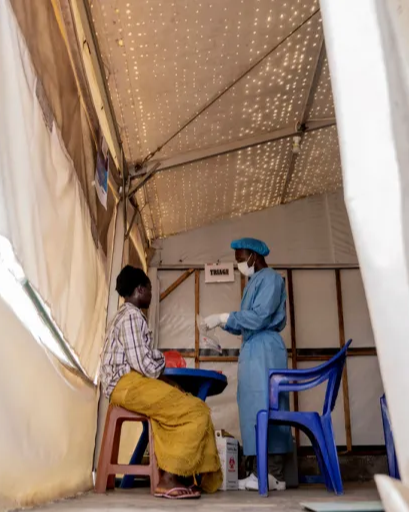
Nairobi, September 13 (RHC)-- The head of the African Union’s health agency has called on Western countries to learn from the COVID-19 pandemic and not abandon Africa amid an ongoing mpox outbreak.
Dr Jean Kaseya, director-general of the Africa Centres for Disease Control and Prevention (Africa CDC), said that 107 new deaths and 3,160 new cases had been recorded in the past week, just a week after his agency and the World Health Organization (WHO) launched a continental response plan.
“In one week, we lost 107 [people]. It’s too much. It’s not acceptable,” he said as he emphasised the need for stronger cross-border surveillance.
Mpox was declared an international emergency in August by the WHO, concerned by a surge in cases of the new clade 1b strain in the Democratic Republic of the Congo (DRC), the epicentre of the outbreak.
The Africa CDC has said it is short of a $600 m target to tackle the disease now present in 14 nations on the continent.
Kaseya called on Western nations to help meet the funding goal “to show that they learned from COVID.” “We don’t want to come back again tomorrow to say, you again abandoned Africa,” he said during an online briefing.
Some African Union member states have already contributed to the six-month response plan budget, a step that Kaseya lauded as showing ownership by the continent.
Criticism was levelled at Western nations during the COVID-19 pandemic, with claims they abandoned Africa by hoarding vaccines or by prioritising shipments to richer nations.
“As we know, the trust was broken between Western countries and Africa. It’s really time for solidarity,” said Kaseya.
According to the latest figures from the DRC’s Ministry of Health, there have been nearly 22,000 cases and 716 deaths linked to the virus recorded since January.
WHO Director-General Tedros Adhanom Ghebreyesus noted last month that the number of cases has been rapidly increasing, although deaths remained relatively low until recently. The surge in cases follows the WHO’s declaration of outbreaks in 12 African nations as a global emergency.
So far, some 200,000 vaccine doses have been delivered to the DRC by the European Union, along with about 50,000 from the United States.
Several hundred thousand more doses have been pledged by European nations, Kaseya said, in addition to about three million promised by Japan. He did not provide further details, including on when the vaccines might be delivered.
Mpox is caused by a virus transmitted to humans by infected animals but can also be passed from human to human through close physical contact. It belongs to the same family of viruses as smallpox, but causes milder symptoms like fever, chills and body aches. People with more serious cases can develop lesions on the face, hands, chest and genitals.
In testing for the disease, men recorded the highest positivity rate at 63 percent, while children under the age of 15 were at 41 percent.
Kaseya said there was a need for increased testing and resources to support it, adding that the continent was not testing enough and that it “cannot rely on only confirmed cases for decision-making and response.”
The director-general announced that he would be travelling to DRC to receive the vaccine when the roll-out is expected to begin in the first week of October, to demonstrate to both “the African people and the Congolese people that the vaccine is safe.”

